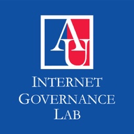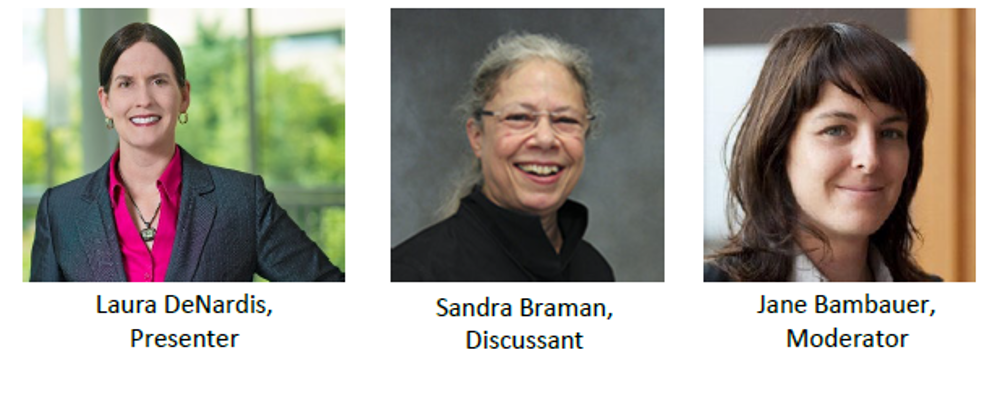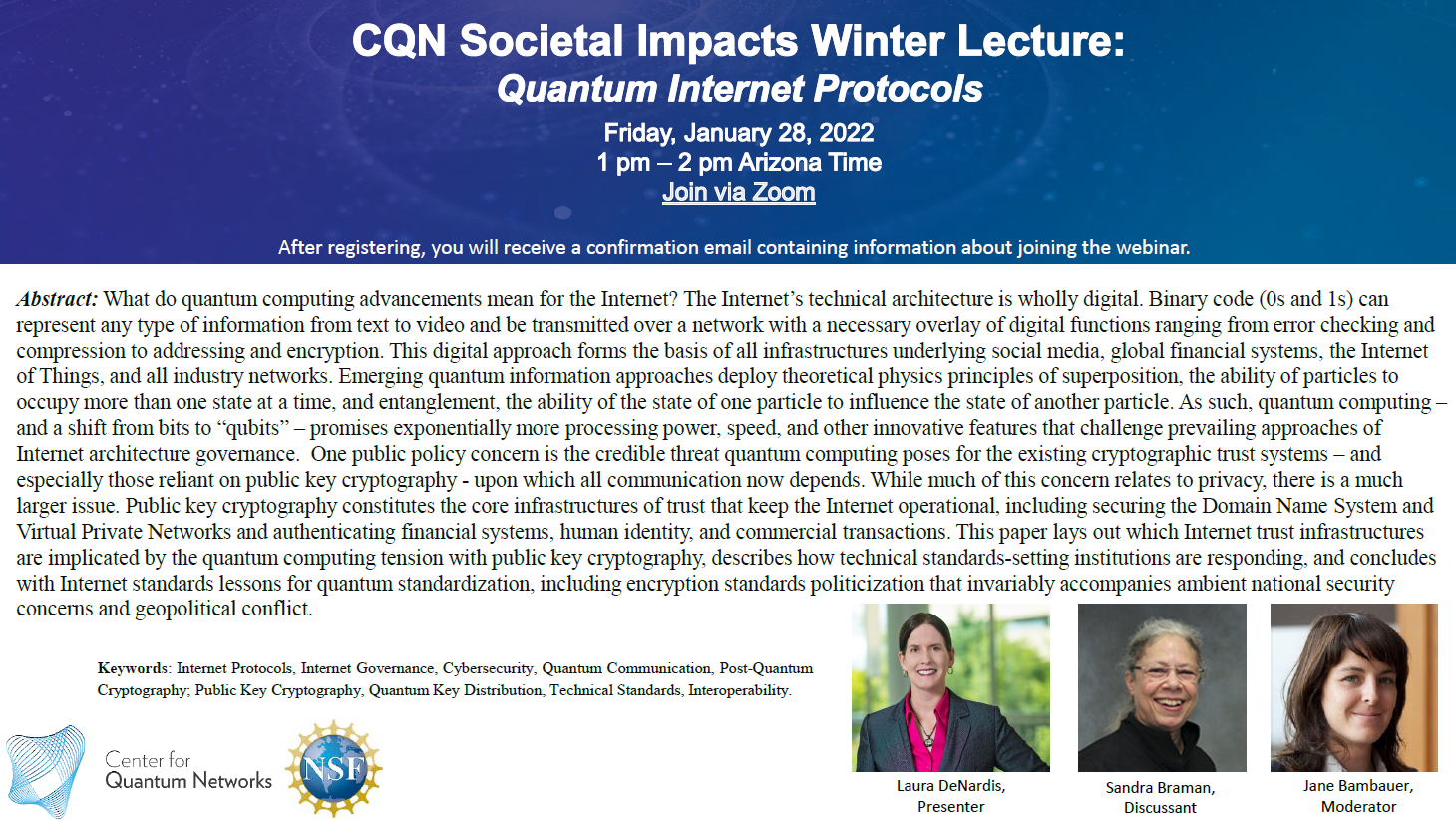Join us on Friday (January 28) at 3 p.m. ET as our Co-Director Dr. Laura DeNardis presents cutting-edge research about Quantum Internet Protocols at the Center for Quantum Networks (CQN) Societal Impacts Winter Lecture. She will be joined by discussant Dr. Sandra Braman, Abbott Professor of Liberal Arts at Texas A&M University, and moderator Dr. Jane Bambauer, Professor of Law at the University of Arizona.
The research is funded by the Center for Quantum Networks, a Gen-4 NSF Engineering Research Center dedicated to building the technical and social foundations for the Quantum Internet.
REGISTER HERE
Abstract
What do quantum technology advancements mean for Internet architecture and governance? The Internet is wholly digital. Discrete binary code (0s and 1s) can represent any type of information from text to video and be transmitted over a network with an overlay of digital functions ranging from error checking and compression to addressing and encryption. Quantum approaches are completely different, representing information in “quantum bits” (qubits) that behave quite differently because of quantum mechanics principles such as entanglement and superposition. Quantum computing – and a shift from bits to quibits – predicts exponentially more processing power, speed, and other features that challenge prevailing approaches. Anticipated quantum-Internet entanglements range from futuristic imaginings of a full quantum Internet to overlaying quantum technologies (such as security enhancements) on the existing Internet. One more immediate intersection involves efforts to shore up Internet security to withstand future attacks from powerful quantum computers. Technical standards-setting organizations unanimously agree that quantum computing poses a credible threat for the existing encryption systems – and especially public key cryptography - upon which all communication and transactions now depends. While much policy concern relates to privacy, this paper addresses a much larger issue. Public key cryptography underlies the core infrastructures of trust keeping the Internet operational, including securing the Domain Name System and virtual private networks, and authenticating financial systems, human identity, and commercial transactions. This paper calls out the Internet trust infrastructures at risk from quantum computing advancements, examines efforts to future proof Internet protocols within dominant standards-setting institutions, and suggests some Internet standards insights that could help inform these efforts, such as the need for backward compatibility, architectural openness, and interoperability, and preparing for the politicization and geopolitical tensions that invariably accompany encryption standards.
About the author
Dr. Laura DeNardis is globally recognized as one of the most influential scholars in Internet architecture and governance. Wired UK named her as one of “32 Global Innovators Who are Building a Better Future” and Slate Magazine listed her—along with Mark Zuckerberg and Chinese President Xi Jinping—as one of the seven most influential people in controlling or influencing the Internet. She is an award-winning Professor in the School of Communication at American University and a Faculty Director of the Internet Governance Lab. Her seven books include the Financial Times Best Technology books of 2020 listed The Internet in Everything: Freedom and Security in a World with No Off Switch (Yale University Press 2020), The Global War for Internet Governance (Yale University Press 2014), Protocol Politics: The Globalization of Internet Governance (MIT Press 2009) and others. She is an affiliated fellow of the Yale Law School Information Society Project and previously served as its Executive Director. She has served as a State Department advisor and Research Director of the Global Commission on Internet Governance. Dr. DeNardis holds an Engineering Science degree from Dartmouth College, a Master of Engineering degree from Cornell, a PhD in Science and Technology Studies from Virginia Tech, and was awarded a postdoctoral fellowship from Yale Law School.


